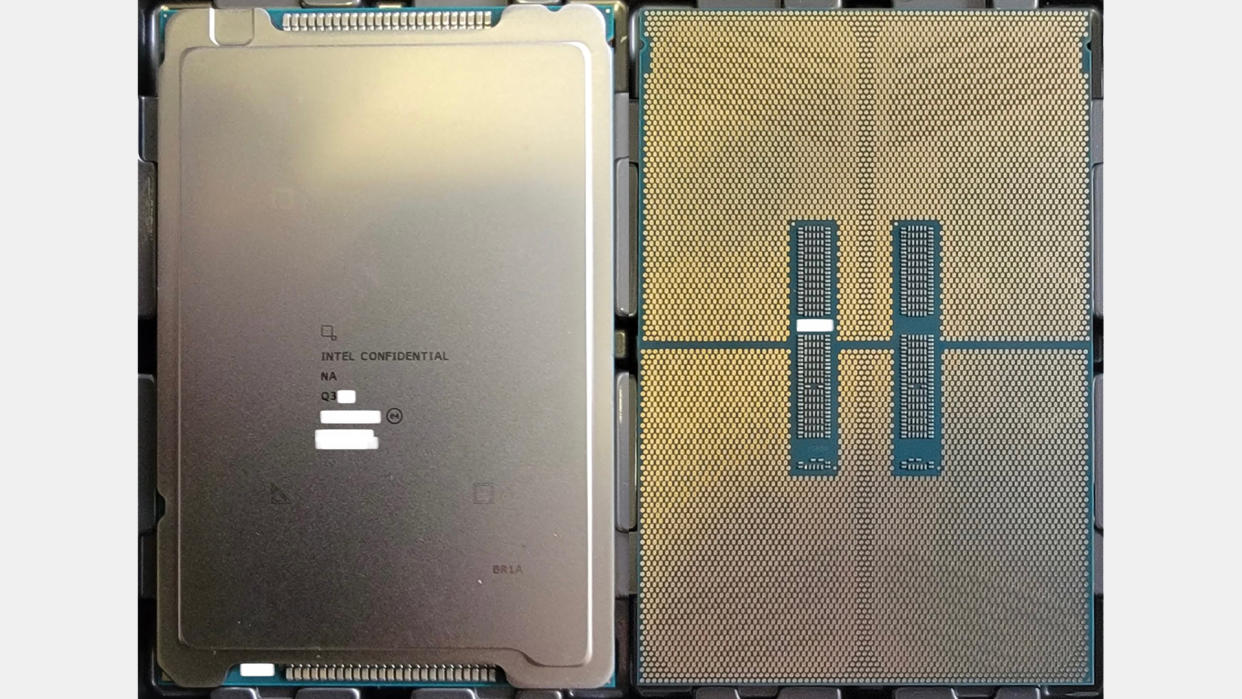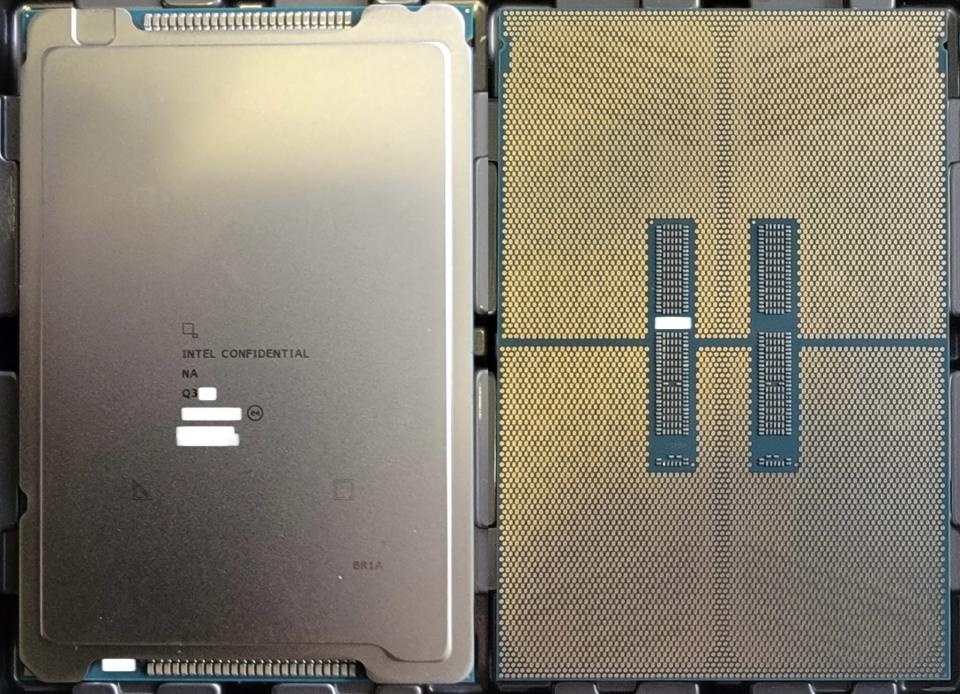Intel's 6th Generation Xeon Scalable 'Granite Rapids' Poses for the Camera

Renowned hardware leaker YuuKi_AnS has published the first photos of Intel's 6th Generation Xeon Scalable 'Granite Rapids-AP' processor, expected to hit the market in 2024 or 2025. The CPU uses Intel's LGA7529 packaging and will share a platform with the company's codenamed Sierra Forest processor.
Engineering samples of Intel's Xeon Scalable 'Granite Rapids' look different than contemporary Xeon Scalable CPUs, which is not particularly surprising as these processors are considerably larger than existing ones. Meanwhile, the fact that these CPUs are already in the wild is not particularly surprising, as the product is less than two years away, so server makers are already testing it.
Intel's upcoming 6th Generation Xeon Scalable processors, code-named 'Granite Rapids,' are expected to offer an increased core count that will surpass that of Sapphire Rapids and Emerald Rapids CPUs. The new processors are projected to feature an advanced 12-channel DDR5 memory subsystem that will be able to use both conventional DDR5-6400 modules as well as higher-performance DDR5-8000 MCR DIMMs. This high-end memory subsystem, when fully populated, can deliver an impressive 614.4 GB/s – 768 GB/s bandwidth, which is a substantial enhancement from the 307.2 GB/s bandwidth of Sapphire Rapids processors.


Furthermore, Intel's next-generation data center processors will reportedly feature up to 96 PCIe Gen 5 lanes, with the CXL protocol on top to support upcoming accelerators/co-processors, storage devices, memory expanders, and other PCIe-enabled devices. The processors are also expected to support six sets of 24 UPI links, to enable efficient CPU-to-CPU communication.
Intel is gearing up a platform dubbed 'Avenue City RP' to support the new Granite Rapids and Sierra Forest processors. This motherboard will facilitate critical CPU features, along with PFR 4.0 root of trust, a novel RunBMC AST26000 module, and OCP 3.0 network cards.

